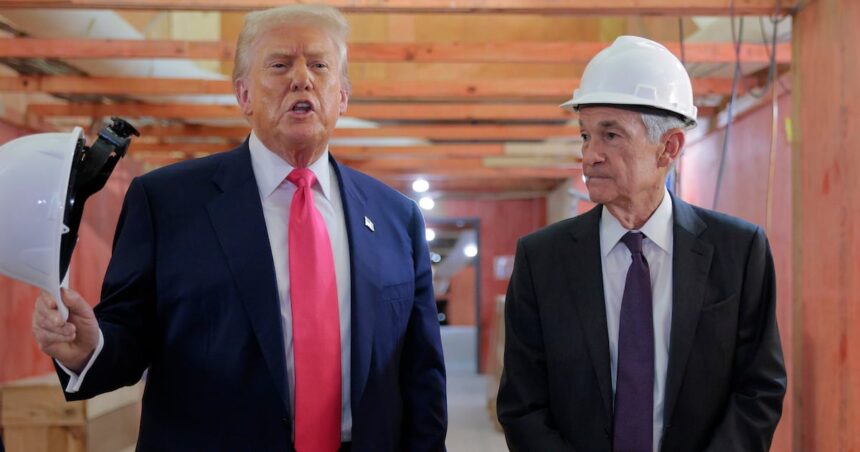President Donald Trump has recently unleashed a fresh wave of criticism aimed at Federal Reserve Chair Jerome Powell as the central bank prepares for a crucial week ahead. The Federal Reserve is anticipated to announce an interest rate cut on Wednesday, a move Trump has long advocated for, especially as it pertains to stimulating the housing market. Despite this potential success, Trump’s comments about Powell remain far from complimentary.
In response to a reporter’s inquiry about progress concerning the succession of the Fed chair, Trump did not hold back on his disdain for Powell. “Well, other than, I don’t like him?” Trump remarked, labeling Powell as “incompetent.” He added that he has three individuals in mind for the role, asserting that any of them would perform admirably.
Trump’s ongoing critique of Powell comes even as the Fed is expected to detail a significant rate reduction, which he believes could invigorate borrowing and consequently aid the housing sector. This follows a stretch of nine months during which the Fed maintained steady rates amidst the President’s relentless pressure.
Despite predictions of a substantial cut, Trump’s complaints point to a perceived inefficiency in Powell’s leadership. He argued that the Fed chair is negatively impacting housing, even as his administration touts overall economic improvement. “Energy is way down, groceries are down—almost everything is way down,” Trump claimed, although these assertions stand in contrast to recent Bureau of Labor Statistics data indicating a rise in inflation.
In particular, the cost of groceries surged by 2.7 percent in August compared to the same month last year, a notable increase from July’s 2.2 percent. Additionally, energy prices rose by 0.7 percent within the same timeframe. Further complicating the situation, new figures reveal a troubling increase in unemployment claims, with 263,000 Americans filing for benefits last week—the highest level in four years.
These emerging economic indicators suggest that the Federal Reserve may approach any potential rate cuts with caution. While Trump has pushed for a reduction of 1 percent, analysts forecast that the central bank is more likely to consider a decrease of no more than 0.5 percentage points from the current rates of between 4.25% and 4.5%.
Moreover, Trump’s efforts to replace Fed governor Lisa Cook, a Biden appointee, add another layer of uncertainty as the next Federal Reserve Board meeting looms. He has indicated that while he is unlikely to remove Powell this year, he is contemplating successors should the opportunity arise. Trump has previously identified his preferred candidates, which include Kevin Hassett, director of the White House National Economic Council; Kevin Warsh, a former Fed governor; and Kevin Waller, a current Fed governor.
As the political and economic landscape continues to evolve, the tension between Trump and Powell highlights the ongoing complexities at the Federal Reserve, underscoring the significant role interest rate decisions play in shaping economic policy and market dynamics.







